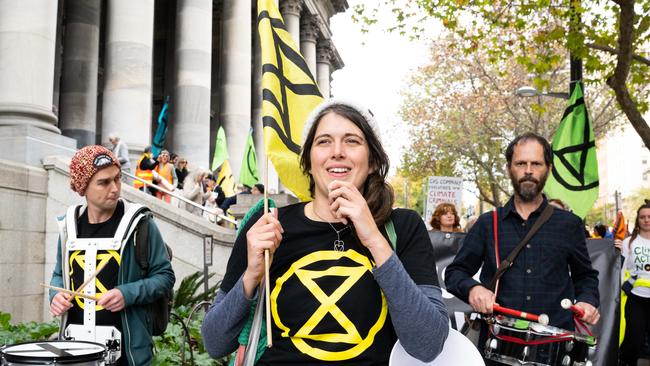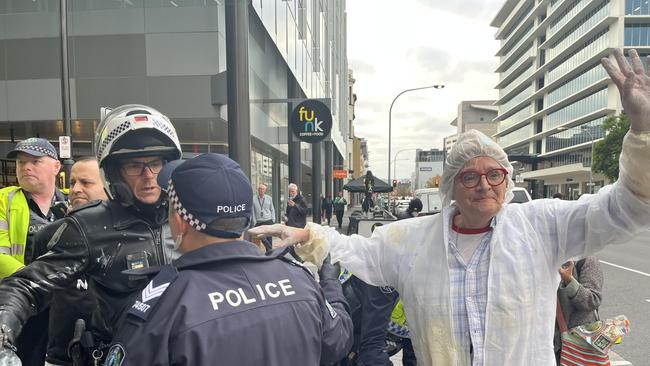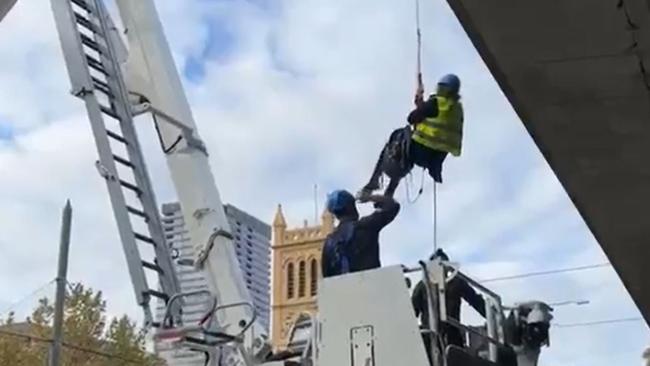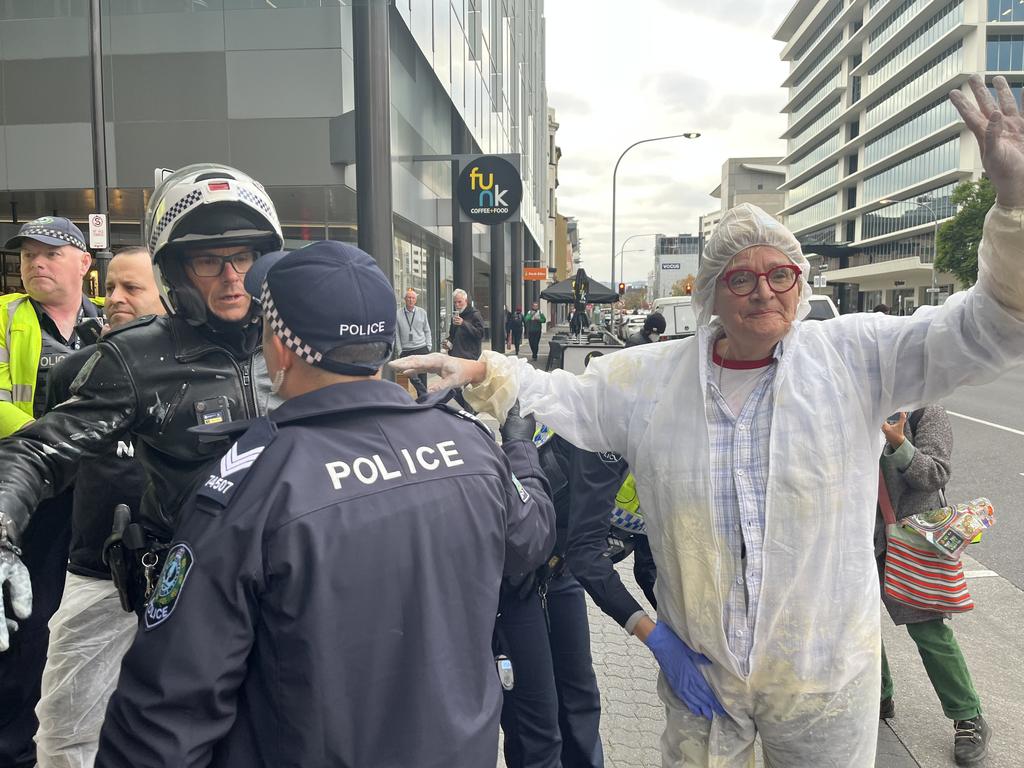New SA protest laws condemned by human rights groups
Planned laws to increase penalties for disruptive public protests – rushed into parliament after this week’s chaos-causing climate change protests – are generating an international backlash.
SA News
Don't miss out on the headlines from SA News. Followed categories will be added to My News.
Planned new laws to dramatically increase penalties for disruptive public protests are generating an international backlash from human rights groups.
Amnesty International put out a statement with several other groups, claiming a pattern of “increasing repression and anti-democratic laws in Australia”.
Premier Peter Malinauskas on Thursday tabled proposed Opposition laws to parliament allowing for a maximum three months’ jail and fines of up to $50,000 – from a current $750 – for protesters who spark community chaos and risk public safety. The proposals came about after activists shut down the city and vandalised the Santos building.

The new laws also allow prosecutors to seek court orders for any defendant to pay “reasonable costs and expenses” of emergency services required to respond.
But Amnesty International Australia campaigner Nikia White said the new bill would “unfairly restrict people exercising their rights to freedom of expression and assembly”.
“This crackdown on the right to protest means all our ability to fight for human rights and combat the climate crisis are under threat,” Ms White said.
“People shouldn’t face huge fines, and even prison sentences, just for standing up for what’s right.”
She said the proposed law is part of an “unacceptable trend” in the country which has “stymied” the right to protest.
“Everyone should be concerned about increasing repression and anti-democratic laws in Australia.”
SA Best member of the Legislative Council Frank Pangallo told parliament on Thursday that the laws were “the beginning of the slippery slide into autocracy”.
“Seriously, extreme rebellionistas are largely harmless, grey-haired old rebel hippies and boomers with a modernist cause to pursue,” Mr Pangallo said.

He took aim at police commissioner Grant Stevens over his response to protest action while Covid restrictions were in place.
“I do not recall the police commissioner going off his tree the same way when 5000 Black Lives Matter protesters vowed to defy his Covid restrictions on public gatherings.”
Unions have also joined calls to rethink the legislation.
SA Unions secretary Dale Beasley characterised the bill as “hasty and reactive legislation”.
“The government needs to deal with this issue with maturity and should not progress this legislation until the entire community has had an opportunity to understand the impacts,” Mr Beasley said.
“Peaceful but disruptive protests and demonstrations have been integral in achieving so much of what we now take for granted in our society.”

Law Soceity president James Marsh said lawyers had “serious concerns”.
“Rushing legislation and bypassing scrutiny is not how good laws are made,” he said.
“Good laws undergo a process of consultation, scrutiny, and debate before being put to a vote.
“The public did not even have a chance to examine the wording of the Bill before it passed the House of Assembly.
“This is particularly worrying in circumstances where the proposed law in question affects a democratic right as fundamental as the right to protest, and drastically increases penalties for those convicted of an offence.
“There may be merit in amending our civil disturbance laws.
“But it requires an examination of the how the proposed laws would impact on the legitimate right to protest, to ensure that any laws which may impinge on our basic rights are proportionate.”
This comes after two Extinction Rebellion protesters accused of vandalising a cafe at the base of Santos Plaza spent the night in custody following their arrest on Thursday morning.
Another member of the group, Meme Thorne, 69, was released on bail after she hung suspended from the Morphett St bridge on Wednesday, causing chaos to traffic during morning peak hour.
Premier Peter Malinauskas defended the proposed new penalties following the disruptive protests.
“When that starts to occur in a way that substantially compromises public convenience, the ability to be able to do their jobs, for our Emergency Service workers to be able to focus on theirs, then I think there’s a need for Government and the parliament to respond,” he told ABC Radio Adelaide on Friday morning.
“What the parliament is seeking to do is give courts the ability to impose a higher sanction on those who break the law with impunity particularly … repeat offenders.”
More Coverage
Originally published as New SA protest laws condemned by human rights groups





